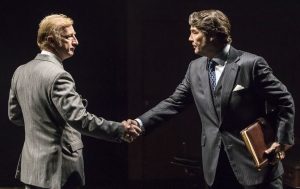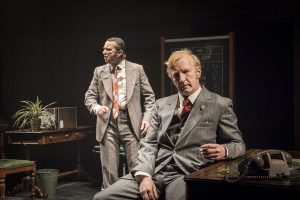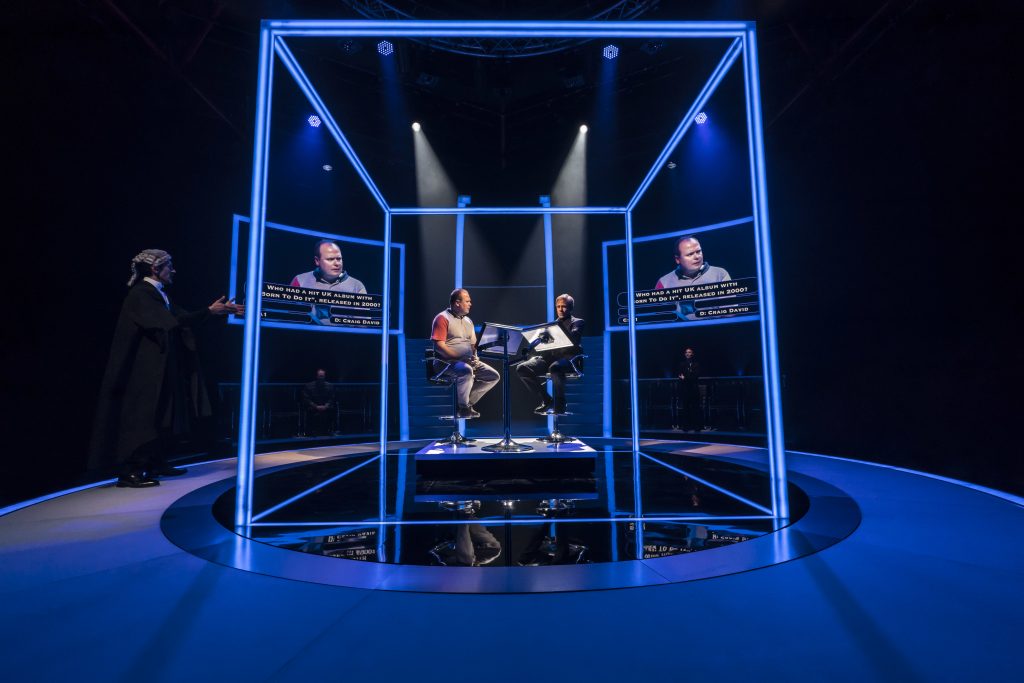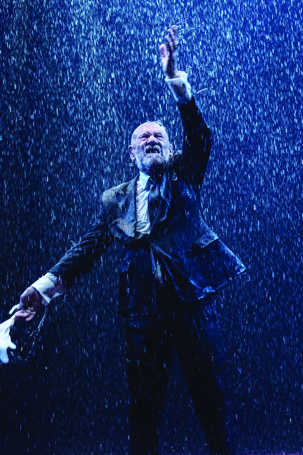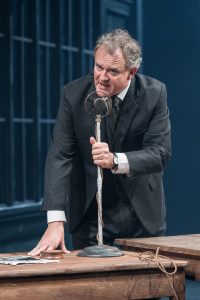The Chalk Garden by Enid Bagnold at Chichester Festival Theatre directed by Alan Strachan with Penelope Keith
[usr=3]
Watch the review of The Chalk Garden on the YouTube channel One Minute Theatre Reviews
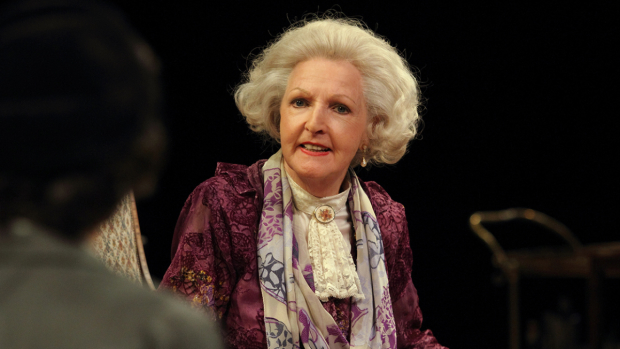
1956, the year Enid Bagnold’s The Chalk Garden was first performed in Britain, was also the year in which Look Back In Anger exploded upon the British stage and made all those upper middle class drawing room comedies like The Chalk Garden with their standard formats and neat conclusions seem irredeemably old fashioned. On the strength of this Chichester Festival Theatre production, you can understand why.
Which is unfair on The Chalk Garden because it’s an intelligent mysterious drama about mothers and daughters, old age, death and the human need for love. There’s also much consideration of old age and death which should put it right on the wavelength of Chichester’s baby boomer audience.
There was no pace to the production which wasn’t helped by Simon Higlett‘s enormous, naturalistic set. It was impressive but the actors spent a considerable time getting from a to b. I did go early on in the run and it may be that once the actors bed down into their parts, the pace will improve.
There’s a lot of witty dialogue cloaking the deep sadness of some intriguing characters’ but on this occasion, for the first half at least, all I heard of this witty dialogue was blah blah blah.
The epigrams scattered throughout which should rival Oscar Wilde and Noel Coward just didn’t flow with the conversation and ended up sounding far too pleased with themselves. I suspect Bagnold aspired to be like Wilde and Coward but lacked their ability to incorporate bon mots into dramatic dialogue.
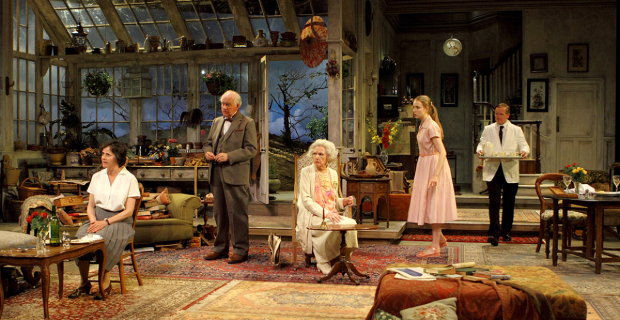
We’re presented with an unhappy mistress of the house Mrs St Maugham, played by Penelope Keith, who is directed or rather misdirected by a fearsome unseen dying butler (for which read ‘old testament god’?). She can’t control her granddaughter nor can she make anything grow in her garden. Dame Penelope captures the Lady Bracknell-like imperious entitlement wonderfully but much less so the emptiness at her heart. Emma Curtis plays her troubled granddaughter with energy.
Then there’s her mysterious new companion Miss Madrigal, whose contained passion was beautifully conveyed by Amanda Root, understands both the granddaughter and the garden but is hiding something devastating from her past.
After a somewhat monotonous first half, the second half with its revelations and resolutions was much more involving. Even so, there is far more to be got out of this play and its characters than Alan Strachan’s production managed.
The Chalk Garden at Chichester Festival Theatre ends its run on 16 June 2018
Here’s the review on the youTube channel One Minute Theatre Reviews
